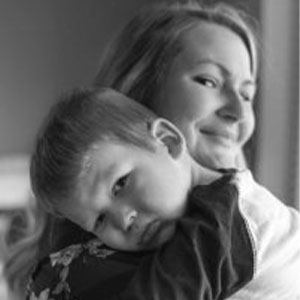Last week I told you I could write for days about why I started my work. Don’t worry—today isn’t that day—but I do want to talk about a related topic. A large part of my clinical work history was spent reducing problem behaviors while I was working on a crisis team in Illinois. I spent around three years working with both children and adults who had some of the most severe behaviors in the state at that time.
Working with ASD Children
During my tenure with the crisis team, I successfully taught parents, caregivers, and staff why the individual they loved or supported was engaging in their problem behaviors. The lessons included what families could do when the behavior happens, and teaching new skills to replace the behavior. I had a 100% success rate with my clients and prided myself in this. The work I did with the crisis team doesn’t hold a candle to the toddler tantrums of my first child, Henry. After reading the last sentence, I’m sure some of you are thinking, “what little monster is she raising?” I can tell you that’s not the case. Henry is a spirited, wonderful little boy who quizzes me on dinosaurs daily, loves ice cream (who doesn’t), snuggles for hours reading with me, and always dances like no one is watching. But Henry, like every other two year I know, has Big Emotions. These Big Emotions took me for a spin when they started.
Coping with Difficult Behavior
Let’s back up for a second. When I did my work with the crisis team, what made me so successful? Applied Behavior Analysis (ABA) has this cool science that studies why behaviors occur. It’s broken down into four categories; behavior happens to gain access to attention, escape from..(fill in the blank), access to tangibles/activities, or automatic (physiological) consequences. By consequences, I mean what follows a behavior. Say, for example, you’re busy making dinner and your child starts to yell or hit. You would probably stop cooking, scold your child, and move on. Your child is looking for your attention. Another example; you ask your child to come get dressed and they begin running and screaming through the house. Your child is trying to escape the demand. Run this recipe a few times over just about everything and you’ll start to see the patterns too. It’s eye-opening. When I did my work with the crisis team and later at my own company (Instructional ABA Consultants), I used this science to customize treatments by using this type of analysis. I would teach what the client is trying to achieve through their problem behaviors, how not to reinforce (or reward) them, and how to teach new skills in place of the problem behaviors.
Difficult Behavior and Family
Back to my situation; so why couldn’t I do this with my darling boy Henry? I have honestly spent a solid six months asking that question and beating myself up over it. Naturally, I reached out to my ‘mom tribe’ for help. I took to heart a lot of reminders from my ‘mom tribe,’ and read a wonderful book, “How to Stop Losing your Shit with your Kids.” When you are a parent and not a clinician you are emotionally attached to this little someone. You are also, almost all the time, running on fumes. When I had a 100% success rate with the crisis team I always had a full night’s rest, fresh coffee, done a morning workout, and chosen my schedule for the day. I was rested, in the zone, and able to come in to provide our cool science, train. On top of all that, every day, like magic I got to leave! With my own children, I’ve spent the better part of two years feeling 100% responsible for their wellbeing. If I’m being truthful I’ve been on overdrive for no good reason other than beating myself up over “doing it right.” Sound familiar? To change the dynamic at home I had to change my own behaviors and it started with self-care. It was impossible to objectively intervene during a toddler tantrum with my own tank so low. I needed to find little ways to start taking care of myself again and not feel guilty about it. I had to calm my nervous system down.
Finding A Balance
Now, while I’m still microwaving my coffee on any given day, I’m also noticing what it feels like to be stressed and taking action. I can’t say enough about the suggestions in the book I referenced above, as it walked me through many self-care steps. As mothers, we are still human and can’t expect ourselves to be “on,” at any given moment. In an emergency, yes, we should absolutely be there, but those 15 minutes of quiet time while you meditate, listen to music, or nap? These short self-care breaks are not damaging your child, they are actually helping them because you are helping you. Moms need to give themselves more frequent passes on being themselves versus being “mom” all the time. The feeling of being overly responsible for my children has changed now that I allocate a bit of time for myself. I also follow a new rule. When I’m feeling frustrated I pause, breathe, and do something recommended by “How to Stop Losing Your Shit with your Kids.” Henry and I do A LOT of down dog yoga poses. In treating myself better I’m able to step back and objectively look at Henry’s tantrums. Who knew that helping my kids started with helping myself? A good colleague of mine reminded me in the throes of motherhood that “ABA is always available to us.” Now that my tank is full“er” (remember I have two kids under two!) I can look to see what Henry is trying to achieve, help him use his words, be safe, and feel so much better about myself. It’s in doing less that I am finally beginning to feel like I’m doing more. While my days aren’t perfect they’re getting better. Using science and self-care are my current jam for tolerating tantrums. Xoxo, Jessie


